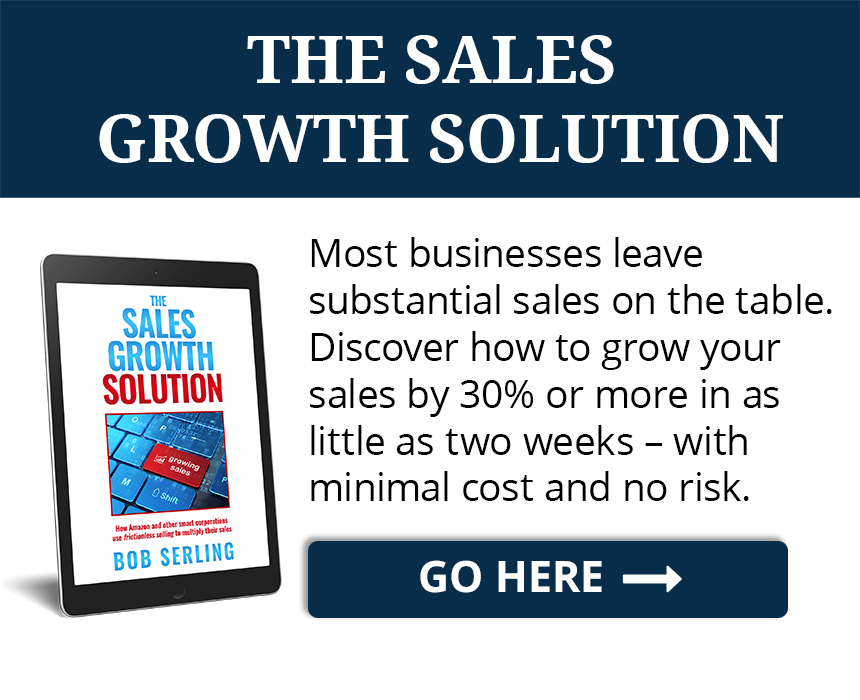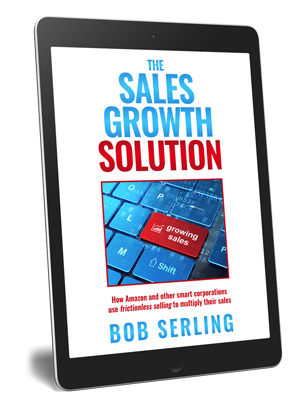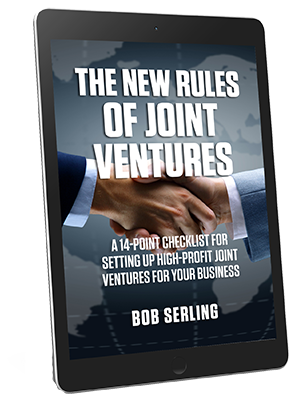Bob Serling: This is 10-Minute Business Success, and today I have the great pleasure to be talking with Dr. Robert Cialdini. Dr. Cialdini is Regents Professor Emeritus of Psychology and Marketing at Arizona State University. He spent his entire career researching the science of influence, earning him an international reputation as the seminal expert in the fields of persuasion, compliance and influence.
Dr. Cialdini is a New York Times best-selling author whose books Influence and Yes! have collectively sold over three million copies. He’s the President of Influence at Work, which provides corporate programs worldwide, and I have to say as we lead into this, too, that I think influence is on my Top 2 list of all-time favorite marketing books. So with that, welcome, Bob!
Robert Cialdini: Well, thank you, Bob. I’m gratified to hear that.
Bob: I know that goes for many, many people I’ve spoken to. I don’t know anybody who doesn’t cite Influence, and Yes!, being the newer book, I’m sure that will join the list soon.
So my question for you today is there are many different what you call “weapons of influence”, and if you were told that from now on, you could use only one of those weapons of influence, what would it be?
Robert: Well, you know, I think I’m going to answer that question a little differently than most of your interviewees in the past, and that is to say we have to consider what the circumstances are under which people are operating – the people we want to influence.
And right now, I think the state of the economy, the markets – they suggest that the people we’re dealing with are uncertain about what to do, and when people are uncertain, they freeze. They sit on the fence. They just don’t want to move because they’re just unsure of what they should do under those circumstances.
There are two principles of social influence that work very powerfully under these circumstances, when people are unsure.
The first is social proof, or what we can call “consensus” – the idea that people will follow the lead of those around them, especially those around them who are like them, who have similar circumstances or have a similar situation. I just saw an article in an academic journal from Beijing. That shows you the reach of this principle – the cross-cultural reach of it.
If restaurant owner put on the menu, “These are our most popular items”, they immediately become twenty percent more popular.
Bob: That’s a great example because I know that I’ve certainly been strongly influenced by that in restaurants, and I think everybody has.
Robert: Sure, and when you go into a restaurant, you’re not quite sure what the best thing is there. Well, if you find out what the other people around you have been doing or are doing in that situation, it’s a good choice to follow their lead, and that reduces uncertainty for people when they get information about what those around them are doing.
When people are unsure, they don’t look inside themselves for answers. After all, all they see is that lack of confidence – that lack of certainty. They look outside, and one place they look is to the evidence of people like them.
So the implication is if we want to be successful in influencing others in our direction, we shouldn’t just rely on our own persuasive powers. We should engage honestly the evidence that others just like these individuals we’re trying to influence, that others have taken our advice, have purchased our products and services, have got onboard with our initiatives and so on.
That will often be more powerful than anything we can provide personally, but in this case, the influence comes from the side, rather than from the front, and it’s dramatically more powerful as a consequence.
Bob: That’s fantastic.
Robert: The other principle of influence that works especially well under the current set of circumstances that I think we’re all confronting, and that is economic uncertainty and unpredictability, is the principle of authority. Remember I said that when people are unsure, they don’t look inside themselves for answers, they look outside, and one place they look is to their peers – the people who have comparable circumstances and examine what those people are doing.
The other thing they do is to look to legitimately constituted authorities – true experts in the arena – because that’s another way to reduce their uncertainty and allow them to get off the fence and take a step that is in everyone’s best interest.
So another thing we can do, then, when we need to marshal the evidence in favor of our recommendation or proposal is identify those individuals, the true experts in the arena, who have gone on record supporting what it is that we are proposing, or what features our product or service has to offer.
If we can get that evidence – and the internet now allows us access to that kind of evidence like never before – that will once again bolster the power of the very same message that we present.
Bob: That’s great. And if you don’t mind, I think I can give an example that would be beneficial. I had a client who does video production for training videos, and he had a major success with a very large bank, so we used that success with that bank as the focus of his ad in a trade journal for the banking industry to generate a lot of business. He was a very small company, so it was kind of a David and Goliath story. The fact that one of the largest, most successful banks used him was instrumental in getting these other large banks to take a look at him.
Robert: Right. So it’s very important to honestly inform people of, first of all, the credentials of the people who are advocating our product, service or idea, but secondly, to be sure that we let them know about our own credentials before we ever try to influence them.
If we are expert in the area, it’s vital to let people know about that background, that experience, that set of credentials that we do have. They’re entitled to know that, they want to know that, and we would be fools of the influence process if we didn’t honestly inform them of that expertise that we worked so hard to generate.
Bob: Great. Let me ask you one question I have related to both of these principles that I’ve never quite understood. Why does, in many cases, a celebrity endorsement work to sell products? There are aspects of both Social Proof and Authority, but it isn’t really somebody you know or who is necessarily an expert, as much as it’s their reputation, their fame.
Robert: Their fame. Just fame and some sort of positive feelings that you have about a celebrity. In this case, I would talk about a third principle of influence, and that’s the principle of liking. We prefer to say yes to those people we like. Celebrities typically are individuals who have a favorable profile in the society of the culture, so because we like those individuals, we’re more willing to pay attention to them and even follow their recommendation.
Bob: That’s great. Well, I should have known that the expert would clear up my confusion on that.
We’re just about out of time. My final question for you is how do people find out more about you and Influence at Work?
Robert: Well, Bob, I think the best way would be to go to our website. It’s www.influenceatwork.com, and there would be evidence there about what we’ve done in the past, as well as any books or tapes that people might want to make themselves available to.
Bob: That’s great. Thank you so much for your time today. I know you’re really busy, and I completely appreciate you taking the time to speak with me.
Robert: I enjoyed it.





 Eliminate the frustration of setting up joint ventures for your business
Eliminate the frustration of setting up joint ventures for your business